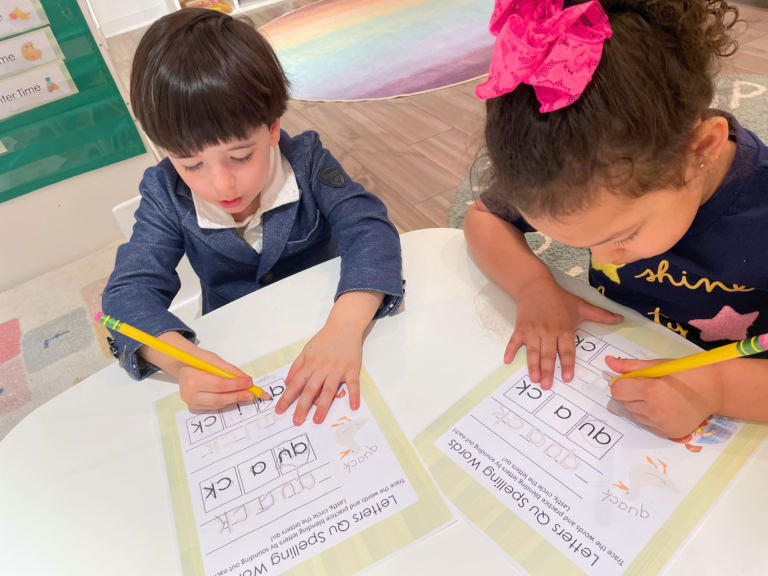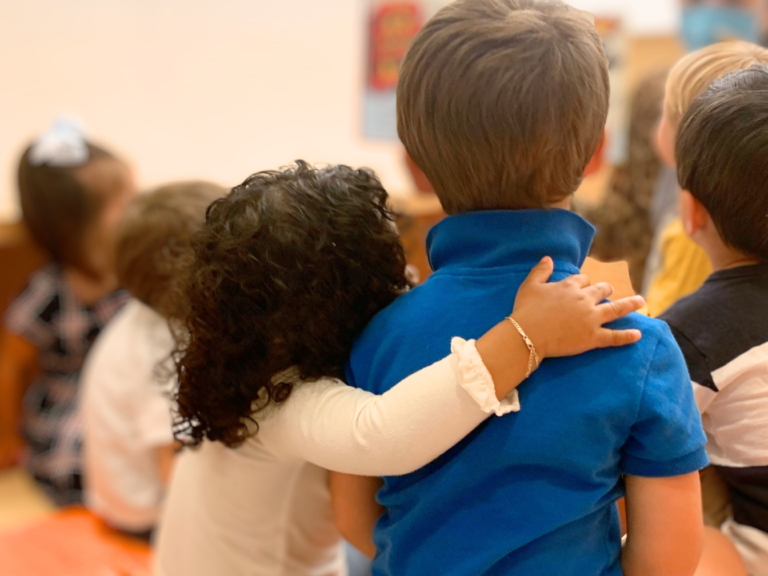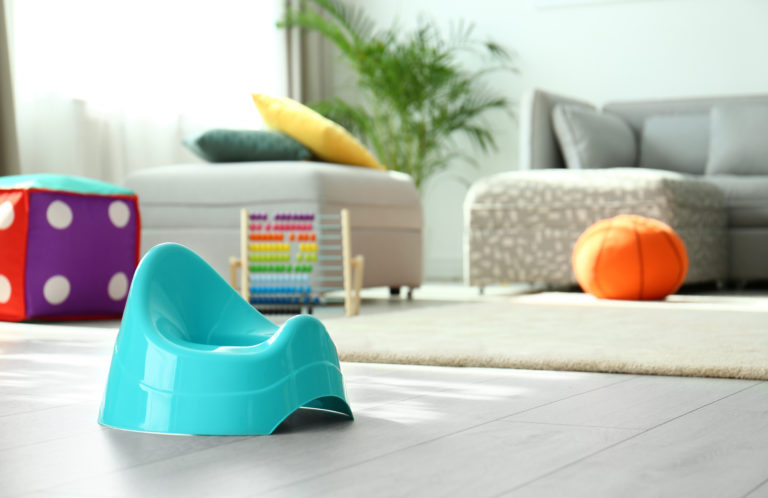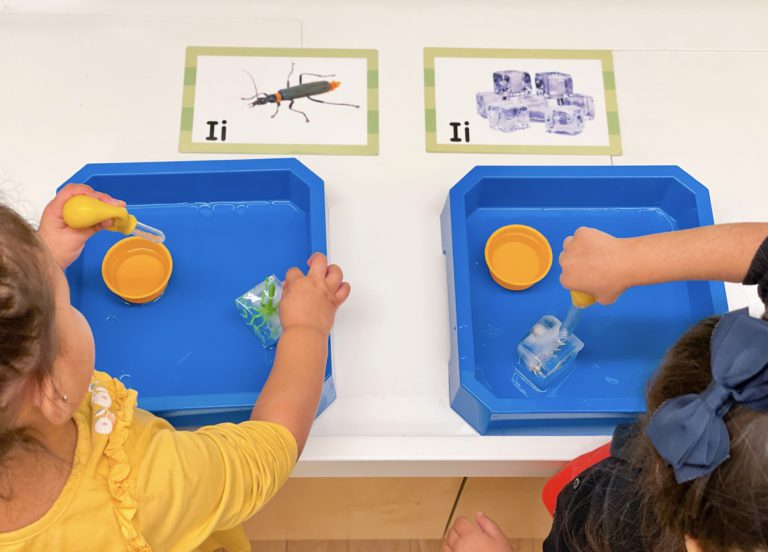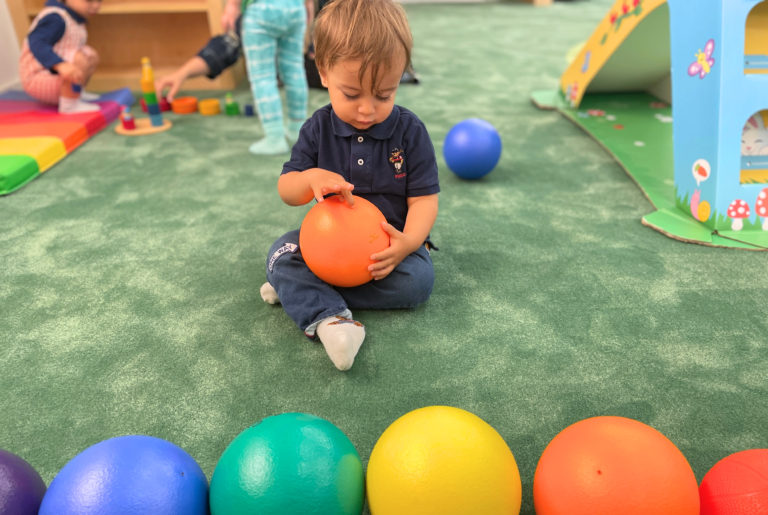How to Celebrate Lunar New Year for Kids
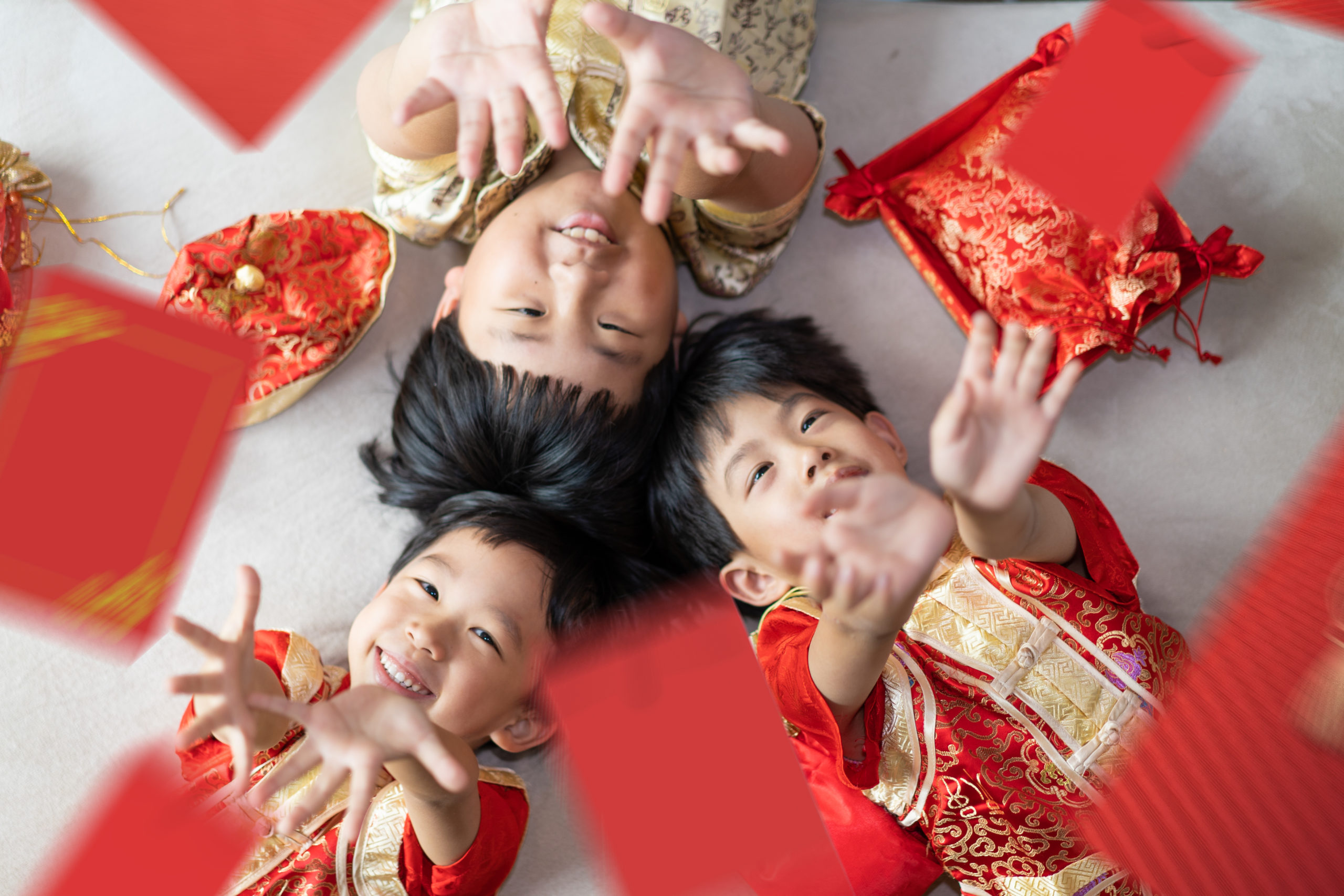
One of the most distinct memories I have from elementary school is from first grade, sitting at my desk with a red envelope filled with gold chocolate coins to my left and a crisp wonton to my right. We were learning about and celebrating the Lunar New Year, also known as “Spring Festival,” which rings in the new year in the lunisolar calendar. I had never celebrated this new year before, but I was intrigued to learn about the holiday.
Lunar New Year celebrations, although traditionally in China, take place in Vietnam, Tibet, South Korea, and other Asian countries. The first new moon of the lunar calendar kicks off two weeks of thousand-year-old traditions, ending on the first full moon. People wear red and decorate their home with red lanterns, spring couplets (Chinese poems), and other calligraphy and symbols representing good fortune in the coming year. One reason behind these traditions is a legend from Chinese mythology—the legend of Nian. Nian is a great terrible beast that wreaks havoc on New Year’s day. The creature is believed to fear fire, loud noises, and the color red. This is why lanterns are lit, firecrackers are used, and red colors are adorned, to keep the beast at bay. In the United States, many schools don’t teach about Lunar New Year for kids, as it is a less-commonly celebrated holiday here. However, that doesn’t mean that Lunar New Year should be excluded from your homeschool preschool and homeschool pre-k lessons!
Lunar New Year Lesson at Home
For our friends who are homeschooling, you can add a lesson about Lunar New Year to your homeschool preschool and homeschool pre-k curriculum: make decorations, learn the history, and look up videos of parades and celebrations happening right now around the world. Teaching your family about Lunar New Year, especially if you do not typically celebrate it, gives you and your little ones the chance to learn about the beautifully diverse world we live in! Having respect and appreciation for all cultures prepares them for the world they will soon step into. You can use this blog as a resource to teach a lesson on Lunar New Year for kids, and you can do additional research to find more ways to celebrate the holiday!
Animal Symbolism
You and your family can learn about the symbolism of the animals for Lunar New Year. For example, last year, 2022, was the year of the tiger, which represented bravery and courage. This coming New Year is the year of the rabbit, predicted to be the year of hope, symbolizing longevity, peace and prosperity. During homeschool preschool and homeschool pre-k, you can ask your little one about a time they felt like a tiger last year—a moment they were brave—and discuss what you hope for in the coming year of the rabbit.
Ornaments
Learning about the significance of ornaments used to decorate for Lunar New Year can inspire your little ones to create their own. You can try calligraphy and write the character Fu (福) on red squares of paper, which means “good luck”. Hanging the squares upside down like a diamond symbolizes the pouring down of good fortune for the coming year. Hands-on activities like this are fantastic for teaching lessons on Lunar New Year for kids!
New Year’s Dinner
Food is one of the most universal connections we have. Learning about the significance of food in different cultures makes people, not just little ones, excited to try new things. Foods served during Lunar New Year reflect values and hopes for the coming year, and making these foods with your family can bring you closer together.
These foods include:
- Yuanxiao – Sticky rice balls: representing family unity
- Yusheng – Raw fish and vegetable salad: representing abundance
- Fagao – Raised cake: represents prosperity, rising in all aspects of life
At Playgarden Prep, we try new foods each week to encourage a broad palette and an excitement for trying new things. Trying some of these traditional foods are not only a great add-on to your lessons on celebrating Lunar New Year for kids, but are also a great addition to your in-person or homeschool preschool and homeschool pre-k lessons.
Traditions
More traditions include elders giving red envelopes with money to children or anyone who is unmarried. These gifts are known as li xi, or “lucky money” in Vietnamese, and hongbao, or “red envelopes” in Mandarin.
Another way to participate in new year traditions is to “sweep away” the past year’s bad luck. Your family can start fresh by helping clean the home, and donating clothes or toys that are no longer used.
Wishing you and your family good fortune and prosperity this new lunar year!
GŌNGXǏ FĀCÁI!
For more homeschool preschool and homeschool pre-k lesson ideas, sign up for your Playgarden Online free trial today!
OTHER HOLIDAY ARTICLES:
Popular


Hi, I'm Miss Julia!
Miss Julia has been an early childhood educator for 5 years, with over 10 years of experience working in childcare. She has been teaching at Playgarden Prep since 2017, and is happy to share ideas on some of her favorite early education topics with you! Miss Julia has a BA from UC Irvine, and uses her experience in performing arts to inspire little ones every day in her enrichment classes at Playgarden. In her free time, Miss Julia loves enjoying nature, cooking, and creating with friends.

